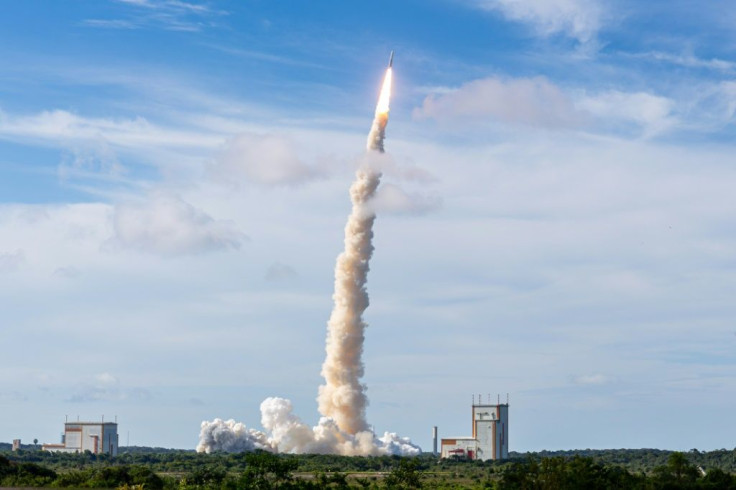Commercial Company Arianespace Launches Rocket Carrying Japanese, South Korean Satellites

KEY POINTS
- Arianespace successfully launched its Ariane 5 rocket
- Arianespace plans to carry out 22 launches in 2020
- Ariane 5's payloads include satellites from Japan and Korea
The world’s first commercial launch service provider Arianespace successfully deployed its third rocket for the year. The launch of the company’s Ariane 5 rocket was able to send communication and weather satellites from Japan and South Korea into space.
Arianespace is a multinational company that was established in 1980 and serves as the first private firm that offers launch services. For years, the company has been working with various countries to ferry their satellites into space.
On Feb. 18, Arianespace launched its third rocket for the year from the Guiana Space Center in Kourou, French Guiana. The launch is part of the company’s plan to carry out 22 space missions in 2020.
The Ariane 5 rocket is a heavy-lift launch vehicle that uses an expendable launch system. It is the main rocket used by Arianespace to deliver payloads to low-Earth orbit or geostationary transfer orbit, a point outside Earth where spacecraft can transfer to a consistent position outside the planet.
For its latest launch, the Ariane 5 rocket carried the satellites JCSAT-17 from Japan and the GEO-Kompsat 2B from South Korea. Luce Fabreguettes, the executive vice president of missions, operations and purchase of Arianespace, confirmed that the satellites were successfully deployed into orbit following the launch of Ariane 5.
“I am thrilled to announce that JCSAT-17 and GEO-Kompsat 2B have been injected as planned into their targeted orbit,” he said in a news conference, according to Space.com.
The JCSAT-17 is a geostationary satellite from Japan that was designed to provide flexible and high-bandwidth communications services to the country and its surrounding regions. It was built by Lockheed Martin Space for the Sky Perfect JSAT Corporation, a broadcasting and communications company in Japan.
The GEO-Kompsat 2B, on the other hand, is an ocean monitoring satellite that was developed for a national program carried out by the South Korean government. It was launched in partnership with the Korea Aerospace Research Institute specifically for meteorological and space weather monitoring missions.
Arianespace noted that through the launch of these two satellites, the company has once again contributed to the improvement of life on Earth.
© Copyright IBTimes 2025. All rights reserved.





















